The views expressed in our content reflect individual perspectives and do not represent the authoritative views of the Baha'i Faith.
In this second part of an essay on Baha’u’llah’s initial experience of revelation from the Creator, we’ll look at four more inherent meanings of those first words from the Creator.
Within his revelatory dream in the prison of the Black Pit, Baha’u’llah heard this message from God: “We shall render Thee victorious by Thyself and by Thy Pen.” – Epistle to the Son of the Wolf.
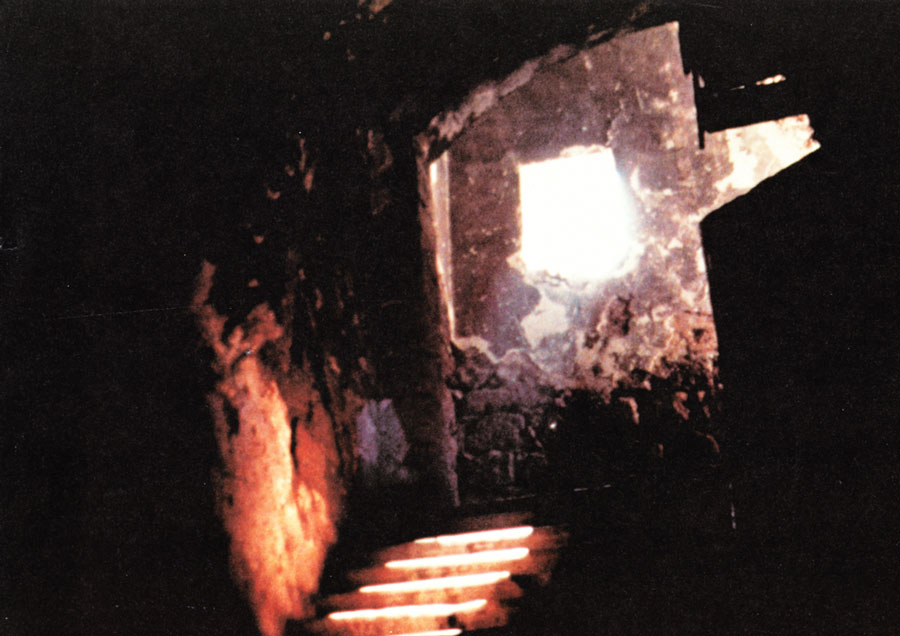
This promise from the Creator assured Baha’u’llah that none of the ancient ways of spreading religion – warfare, coercion, or violence – would be employed during the Baha’i revelation. Nor, the Baha’i teachings say, would religion be imposed by force through the coercive mechanisms of society itself. These words invest the Baha’i teachings with the principle of the separation of church and state:
1. The Separation of Church and State
The realm of religion is the realm of spirit, and for that reason Baha’u’llah taught that the only legitimate means of promoting religion is love, rational persuasion and transformation of the hearts of the people through their independent study of the words of God.
This elimination of coercion and constraint from the realm of religion affirms the institutional separation of church and state.
In his writings, Baha’u’llah elaborated on the meaning of this concept – rendering the Cause of God victorious through the prophet and his pen – by stating that this means the realm of state belongs to the realm of the Earth, while the realm of religion belongs to the realm of the heart.
Baha’u’llah wrote that God has invested secular political institutions with the authority over the Earth, and he has singled out the heart of the people for his dominion:
The one true God, exalted be His glory, hath ever regarded, and will continue to regard, the hearts of men as His own, His exclusive possession. All else, whether pertaining to land or sea, whether riches or glory, He hath bequeathed unto the Kings and rulers of the earth. – Baha’u’llah, Gleanings from the Writings of Baha’u’llah
It is of course, important to note that this separation is not the same as the prevalent Western conception of the separation of church and state. Baha’u’llah wants to transform every aspect of civilization, so that everything in it becomes spiritual.
Being spiritual means engendering a culture that sees all people and all beings as sacred and endowed with rights. Therefore, the Baha’i teachings say that art, the global economy, the politics of nations and other social institutions should also be transformed in the light of a spiritual and moral attitude that affirms the dignity and equality of all human beings. But in the Baha’i teachings this moral and spiritual reconstruction of the world is not accompanied by an institutional identity that binds the coercive apparatus of state with a religion.
2. The Unity of All Religions and their Prophets
One of the primary teachings of the Baha’i Faith present in the first word of Baha’u’llah is the unity of all religions and the unity of all prophets of God.
“if religion is understood as the legitimization of violence and hatred it is better not to have religion.”
The Baha’i teachings say that the emphasis on such unity is one of the most significant preconditions of realization of peace in the world. Religion should be a cause of unity and accord, and if religion is understood as the legitimization of violence and hatred it is better not to have religion.
Baha’u’llah emphasized the unity of all religions and all the prophets and messengers of God. The truth of all religions is one and the same, he proclaimed, even though that same truth has been transmitted to humanity in the form of some social laws that are expressions of the time and space in which the religion appears.
Baha’is believe that humanity must recognize the common spiritual truth of all religions instead of reducing religion to its historically-specific social laws, and move towards the harmony and unity of all religion.
One of the ways that Baha’u’llah’s first word manifests the principle of the unity of all religions is this part of that statement: “Grieve Thou not for that which hath befallen Thee, neither be Thou afraid, for Thou art in safety.” The last part of this statement “neither be Thou afraid, for Thou art in safety” is exactly the word that God spoke to Moses. According to the Qur’an (28:31), when God asked Moses to lay his staff on the ground and it turned into a gigantic snake, Moses became afraid and stepped back. Then God addressed Moses and said exactly what God said to Baha’u’llah. This means that Baha’u’llah is the same as Moses – and it also implies that the staff of Moses turns into the pen of Baha’u’llah. The symbol of the miraculous triumph of God over the forces of hate and injustice is now the pen of the prophet, whose movements transform the word and vindicate the spiritual truth.
3. The Dialogical Conception of Religion
This leads to another teaching of Baha’u’llah implicit in this first divine revelation – the dialogical conception of religion. Here three realities are defined in terms of one and the same attribute, namely assisting and rendering the Cause of God victorious.
First, it is God who renders the cause of Baha’u’llah victorious, indicating the promise made by God to Baha’u’llah that He will assist him. But the way God renders Baha’u’llah victorious is through the very being and words of Baha’u’llah himself. In other words, Baha’u’llah’s entire being represents the process of rendering the divine Cause victorious.
But then the rest of the statement entails the divine promise that “Erelong will God raise up the treasures of the earth – men who will aid Thee through Thyself and through Thy Name …” It is noteworthy that the word that is translated here as “will aid,” is the same word that is translated earlier as rendering victorious (nusrat). In other words, humanity also engages in the same mission, through the proclamation of the word and name of Baha’u’llah.
We can see here that God, his prophet, and humanity all participate in this process of nusrat, the very essence of religious truth. This means that humans appear in the image of God, participating in the spiritual regeneration of the world. Such a divine covenant indicates the dignity of all human beings. Humans now become spiritual beings, as consciousness, who should approach spiritual truth through their independent search and spiritual journey.
Freedom of conscience, equal rights, the dignity of all humans, democracy, and a global culture of peace are all logical reflections and manifestations of this new definition of human beings – concepts Baha’u’llah gradually unveiled in his writings.
4. Humanity: A Mine Rich in Wonderful Gems
The final implication of this original passage from Baha’u’llah emphasizes the active and glorious purpose of human life. In his statement, Baha’u’llah defines spiritual human beings as “treasures of the earth.” The background of this statement emerges from a number of Shi’a prophecies, indicating that at the time of the coming of the 12th Imam, the promised one, the treasures of the Earth will be discovered. But for Baha’u’llah the supreme treasure of the Earth is the spiritual potentialities of human beings, not various forms of gold and silver.
Later writings of Baha’u’llah define human beings as a mine that rich in wonderful gems, and it is through spiritual education that these treasures can be unveiled and manifested.
So for Baha’is, life is the active process of the realization of the richness of human potential and the journey to realize it. The Baha’i writings define paradise as the realization of these spiritual potentials. The process of life represents the very dynamics of the construction of paradise on this Earth.
Another expression of the same point is definition of these humans as men (In Arabic, Rijal). Here the people who will rise to aid the cause of God are defined as men. But these men are not biological men, rather they are all those who assume the active and public role, which only men used to do.
As Baha’u’llah makes clear in so many of his writings, the souls who rise to assist his cause are both men and women. Baha’u’llah designates these people as men (Rijal) – not to exclude women, but to invite the entirety of humanity, men and women, to assume the social role that was once confined to men.
This Baha’i message defines both men and women not in terms of their biology but rather through their spiritual identity. All are men, all are active and public beings, for all are spiritual beings. Baha’u’llah’s use of the word rijal, here meaning the social role of men and not the biological man, is the continuation of the mystical definition of rijal as both men and women.
In his Meccan Revelations, Ibn al-Arabi, the famous mystic of Islam, interpreting the Qur’anic reference to men (rijal) who are not prevented by commerce or trade from remembering God (24:37), explained that these men are noble beings – who are both men and women. It is noteworthy that Baha’u’llah himself frequently refers to this same Qur’anic statement about rijal and interprets them as “hands of the cause,” those who devote their lives to rendering the Cause of God victorious. As we know, in the Baha’i Faith the title of Hands of the Cause applies to both males and females. That is why Baha’u’llah many times has affirmed that all Baha’i women are accounted as rijal, as men, in the active social role of a spiritual human being.
You May Also Like
Comments



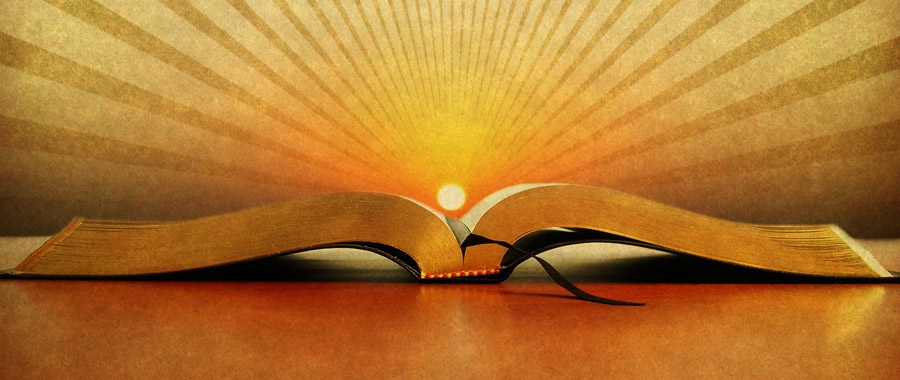
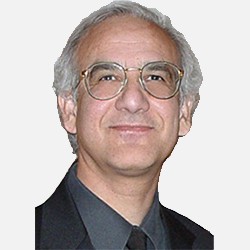
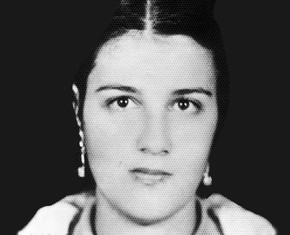
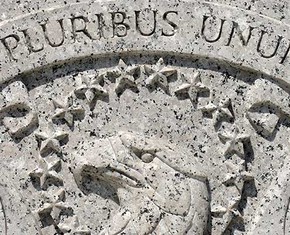










Shoghi Effendi in 1921: Another express provision in the teachings of the Movement is the institution of the House of Justice called the ‘Baytu’l-‘Adl’. Although the details touching its structure and operation have not yet been fully laid down yet the broad principles guiding its future activities has been established. Its duties are religious, educational, economic and political. (...). It is broadly speaking the nucleus of the Bahai State. Church and State thus far from being divorced from one another are harmonized, their interests are reconciled, are brought to co-operate for the same ...end, yet for each is reserved its special and definite sphere of activity
up to the individuals to decide for them what is the policy of the Baha'i Faith, but it should be through consultative leadership. So, doesn´t mean that the House of Justice is going to be the new state of the future, it means that the
relation of the Bahá'í community to State -- which is a secular state -- to political institutions and so on, ultimately is going to be
decided by the consultative ...leadership of the Bahá'í community."